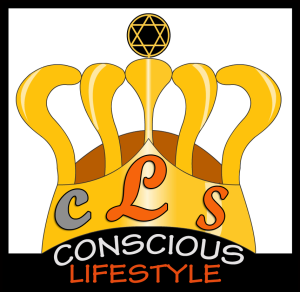Blog
Conscious Lifestyle Education > Blog > Uncategorized > 300 AOG – The holies of Holy – Holiest of all
300 AOG – The holies of Holy – Holiest of all
- June 13, 2012
- Posted by: admin
- Category: Uncategorized
No Comments
The holies of Holy (holiest of all):

The third level of God’s presence or relationship was the Holies of Holy.
The high priest was commanded to go into the holies of holy only once a year for the sake of atoning the sins of Israel.
Once a year on the day of atonement the high priest appeared before God (in the holies of holy, the place where the ark of the covenant was located).
The holy act of appearing before God once a year fell on the 10th day of the 7th month called Tishrie on the Jewish, Hebrew, God’s calendar, which falls around the month of September or October on the Gregorian calendar.
In the tabernacle and holies of holy the priest served in the presence of God bear footed (with out shoes).
The “day of atonement” as it is called in English derives from the Hebrew word called “Yom-kippur.
The hebrew word Yom-kippur is mad up of two words; “yom and kippur”.
Yom means “day” in Hebrew and Kippur comes from a root that means “to cover or hide”; a secondary meaning is “to obliterate (sin)” and hence “to expiate”.
Thus Yom Kippur has come to mean “day of atonement”. Some say there is a link to kapporet, the “mercy seat” or covering of the Ark of the Covenant.
Added text taken from wikipedia.
Yom Kippur (Hebrew: יוֹם כִּפּוּר, IPA: [ˈjom kiˈpuʁ], or יום הכיפורים), also known as Day of Atonement, is the holiest and most solemn day of the year for the Jews.
Its central themes are atonement and repentance. Jews traditionally observe this holy day with a 25-hour period of fasting and intensive prayer, often spending most of the day in synagogue services. Yom Kippur completes the annual period known in Judaism as the High Holy Days or Yamim Nora’im (“Days of Awe”).
Article written by Apostle Ngabo for conscious lifestyle/part of it taken from wikipedia.org

The third level of God’s presence or relationship was the Holies of Holy.
The high priest was commanded to go into the holies of holy only once a year for the sake of atoning the sins of Israel.
Once a year on the day of atonement the high priest appeared before God (in the holies of holy, the place where the ark of the covenant was located).
The holy act of appearing before God once a year fell on the 10th day of the 7th month called Tishrie on the Jewish, Hebrew, God’s calendar, which falls around the month of September or October on the Gregorian calendar.
In the tabernacle and holies of holy the priest served in the presence of God bear footed (with out shoes).
The “day of atonement” as it is called in English derives from the Hebrew word called “Yom-kippur.
The hebrew word Yom-kippur is mad up of two words; “yom and kippur”.
Yom means “day” in Hebrew and Kippur comes from a root that means “to cover or hide”; a secondary meaning is “to obliterate (sin)” and hence “to expiate”.
Thus Yom Kippur has come to mean “day of atonement”. Some say there is a link to kapporet, the “mercy seat” or covering of the Ark of the Covenant.
Added text taken from wikipedia.
Yom Kippur (Hebrew: יוֹם כִּפּוּר, IPA: [ˈjom kiˈpuʁ], or יום הכיפורים), also known as Day of Atonement, is the holiest and most solemn day of the year for the Jews.
Its central themes are atonement and repentance. Jews traditionally observe this holy day with a 25-hour period of fasting and intensive prayer, often spending most of the day in synagogue services. Yom Kippur completes the annual period known in Judaism as the High Holy Days or Yamim Nora’im (“Days of Awe”).
Article written by Apostle Ngabo for conscious lifestyle/part of it taken from wikipedia.org



